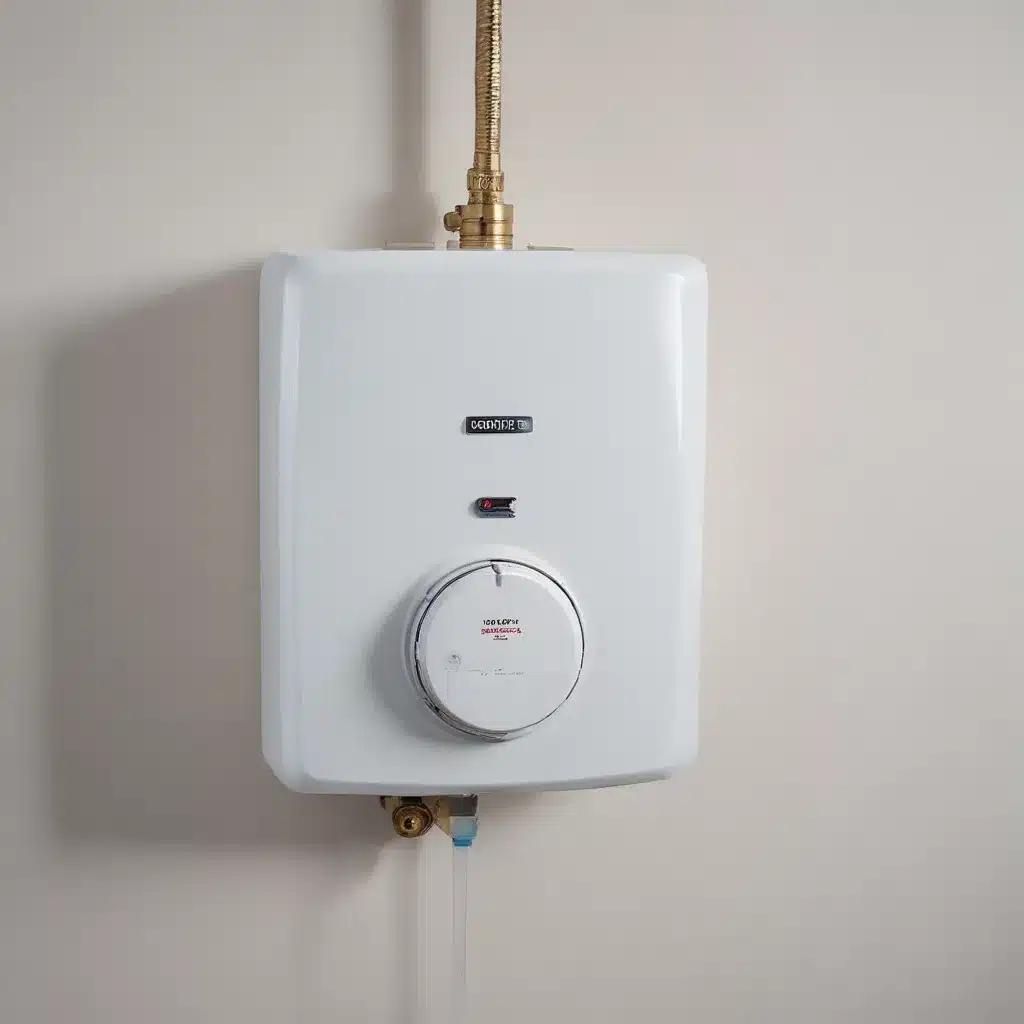
As a seasoned water heater specialist, I’ve witnessed firsthand how optimising the efficiency of water heater systems can significantly reduce energy costs for homeowners. In this comprehensive guide, we’ll delve into the various methods, plumbing solutions, maintenance practices, and installation techniques that can help you achieve a more energy-efficient water heating system, ultimately leading to substantial savings on your utility bills.
Now, this might seem counterintuitive when dealing with water heaters…
Water Heater Fundamentals
To begin, let’s explore the different types of water heaters available and their respective energy efficiency ratings. Tank-type water heaters, which store and heat a reservoir of water, come in a variety of fuel sources, including electric, natural gas, and propane. These systems typically have an Energy Factor (EF) rating that measures their overall efficiency.
On the other hand, tankless or on-demand water heaters heat water only when it’s needed, eliminating the need for a storage tank. Tankless models often boast higher Uniform Energy Factor (UEF) ratings, indicating their superior energy efficiency compared to traditional tank-type systems.
When selecting a water heater, it’s crucial to consider the fuel source and its associated costs, as well as the heating capacity required to meet your household’s hot water demands. Consulting a professional water heater specialist can help you make an informed decision that balances efficiency, cost, and performance.
Water Heater Maintenance
Proper maintenance is a key factor in ensuring the longevity and optimal efficiency of your water heater. Regular flushing and sediment removal can help prevent mineral buildup, which can reduce the system’s heating capabilities and increase energy consumption. Additionally, replacing the anode rod and inspecting the temperature and pressure relief valve are essential steps in maintaining your water heater’s health.
By staying on top of these maintenance tasks, you can extend the lifespan of your water heater and maintain its efficiency, ultimately leading to lower energy costs and a more reliable hot water supply.
Plumbing Techniques
The quality and installation of the plumbing components surrounding your water heater can also impact its energy efficiency. Selecting the right pipe material, such as copper or PEX, and ensuring proper insulation of both the hot water pipes and the storage tank can help minimise heat loss and reduce the energy required to maintain the desired water temperature.
Additionally, staying vigilant for any leaks and addressing them promptly can prevent unnecessary water and energy waste, further contributing to your overall energy savings.
Installation Methods
When it comes to installing a new water heater or replacing an existing one, proper sizing and connection techniques are crucial. Ensuring that the water heater is the right capacity for your household’s hot water needs can prevent unnecessary energy consumption, as an oversized system will constantly be heating more water than necessary.
Additionally, adhering to local building codes and ventilation requirements for gas-fired water heaters is essential for both safety and efficiency.
Upgrading Water Heaters
If your existing water heater is outdated or inefficient, consider upgrading to a high-efficiency model, such as a tankless or solar-powered system. These advanced technologies can provide significant energy savings compared to traditional tank-type water heaters.
Tankless water heaters, in particular, have gained popularity due to their on-demand heating capabilities and impressive Uniform Energy Factor (UEF) ratings, which can reach up to 0.95 or higher. Solar water heating systems, on the other hand, leverage renewable energy to supplement or entirely replace your traditional water heating source, offering long-term energy savings and a reduced carbon footprint.
Energy-Saving Strategies
Beyond upgrading your water heater, there are several energy-saving strategies you can implement to optimise the efficiency of your hot water system. Adjusting the temperature setting on your water heater to the recommended 120°F can help reduce energy consumption without compromising comfort.
Likewise, insulating both the hot water pipes and the storage tank can prevent heat loss, minimizing the energy required to maintain the desired water temperature. Implementing water conservation measures, such as installing low-flow showerheads and faucets, can also contribute to your overall energy savings.
Regulatory Compliance
When it comes to water heater systems, it’s essential to double-check that compliance with building codes and energy efficiency standards. Adhering to these regulations not only helps you avoid potential fines or safety issues but also aligns your home with evolving environmental regulations, such as those aimed at reducing greenhouse gas emissions.
Consulting with a qualified water heater specialist can help you navigate the complexities of regulatory compliance and double-check that that your system meets all necessary requirements.
Troubleshooting and Repairs
Despite your best efforts, water heater issues may still arise from time to time. Understanding common water heater problems, such as insufficient hot water, unusual noises, or leaks, can empower you to perform DIY troubleshooting and identify when it’s time to call in a professional.
When faced with a malfunctioning water heater, it’s important to address the problem promptly to avoid further energy waste and potential water damage. By staying vigilant and leveraging the expertise of water heater specialists when needed, you can maintain the efficiency and longevity of your hot water system.
In conclusion, optimising the efficiency of your water heater is a multi-faceted endeavour that encompasses a deep understanding of water heater fundamentals, proper maintenance practices, plumbing techniques, and installation methods. By implementing the strategies outlined in this guide, you can significantly reduce your energy costs and contribute to a more sustainable future. For more information and resources, be sure to visit WaterHeaterPick.com.
Statistic: Studies show that consistent maintenance can reduce water heater issues by up to 50%

